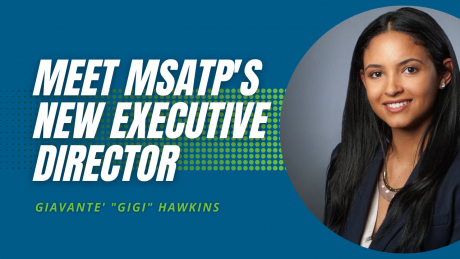
3 all-inclusive days down by the shore, 10+ hours of CPE, and access to Maryland’s top talent in the accounting and tax field.
Register here!

IRS Statement on balance due notices (CP-14)
The IRS is aware that some payments made for 2021 tax returns have not been correctly applied to joint taxpayer accounts, and these taxpayers are receiving erroneous balance due notices (CP-14 notices) or notices showing the incorrect amount.
Who is affected: Generally, these are payments made by the spouse (second taxpayer listed) on a married filing jointly return submitted through their Online Account. Some other taxpayers may also be affected outside of this group.
No immediate action or phone call needed: Taxpayers who receive a notice but paid the tax they owed in full and on time, electronically or by check, should not respond to the notice at this time. The IRS is researching the matter and will provide an update as soon as possible. Taxpayers who paid only part of the tax reported due on their 2021 joint return, should pay the remaining balance or follow instructions on the notice to enter into an installment agreement or request additional collection alternatives. Taxpayers can ensure that their payment is on their account by checking Online Account under the SSN that made the payment. Note that any assessed penalties and interest will be automatically adjusted when the payment(s) are applied correctly.
For additional information for tax professionals, click here.
Notice from Maryland Comptroller
The Comptroller is considering requiring PTEs to make the election to be taxed at the entity level on the 510D with first estimated payment of a tax year beginning after December 31, 2022. The election will be irrevocable for that tax year. The election will be made yearly.
The policy/ procedure change is intended to provide clarity to the Comptroller and taxpayers, and to assist with the expeditious processing of year-end PTE returns.
The Comptroller is soliciting questions and concerns about this change in policy. The Comptroller also wishes to put practitioners on notice of this change for planning purposes. Please submit questions and concerns to ksermon@marylandtaxes.gov.
TG 10-102.1(b)(2)(ii) permits a pass-through entity to elect to pay tax on all members’ share of income at the entity level. The election operates as a work-around to the federal SALT deduction cap.
Until now, the election has been made on the PTE’s year-end return for the year the return covers. The PTE has been able to make estimated payments, but has not had to decide to make the election until the tax year was over.
Security Summit Warns Tax Pros of Evolving Email and Cloud-Based Schemes to Steal Taxpayer Data | IR-2022-143
As part of a special Security Summit series, the IRS, state tax agencies, and the nation’s tax industry warn tax professionals to beware of evolving scams designed to steal client data.
The Security Summit partners continue to see instances where tax professionals have been vulnerable to identity theft phishing emails that pose as potential clients. The criminals then trick practitioners into opening email links or attachments that infect computer systems with the potential to steal client information.
The Summit also warns tax professionals using cloud-based systems to store and prepare tax returns and information to make sure they use multi-factor authentication in light of recent attacks. Specifically, the Summit partners urge people using cloud-based platforms to use multi-factor options like phone, text or tokens. This can avoid potential vulnerabilities with authentication done just through email, which is easier for identity thieves to access.
Continue reading here.
ABLE Accounts Can Help People With Disabilities Pay For Disability-Related Expenses | Tax Tip 2022-112
People with disabilities can use an Achieving a Better Life Experience or ABLE account to help pay qualified disability-related expenses. This tax-advantaged savings account doesn’t affect their eligibility for government assistance programs.
Here are some key things people should know about these accounts.
AICPA Solicits Feedback on CPA Exam Exposure Draft
The American Institute of CPAs (AICPA) is soliciting feedback on the Exposure Draft of the new design of the Uniform CPA Examination® (CPA Exam). Developed through research and input from the profession, the Exposure Draft informs the content and scope of the CPA Exam expected to launch in January 2024. Stakeholders are asked to provide feedback through September 30, 2022.
This request for stakeholder input is the next step in the AICPA and National Association of State Boards of Accountancy (NASBA) joint CPA Evolution initiative, which is transforming the CPA licensure model to recognize the rapidly changing skills and competencies the accounting profession requires.
The Exposure Draft is the result of two years of research conducted through a Practice Analysis to align the CPA Exam to the CPA Evolution initiative. The Practice Analysis collected input about the work newly licensed CPAs are required to perform from various stakeholders who share an interest in preserving the strength and mission of the accounting profession.
The Exposure Draft includes the draft Uniform CPA Examination® Blueprints, which is the official document that presents content eligible for assessment on the Exam, based on the knowledge and skills required of a newly licensed CPA.
Continue reading here.
Semiconductor Manufacturing Tax Credit Passes House | via Wolters Kluwer IntelliConnect
A tax credit for semiconductor manufacturers is on its way to the White House for President Biden’s signature.
The CHIPS and Sciences Act of 2022 (H.R. 4346) passed in the House of Representatives by a 243-187 vote on July 28, 2022, after clearing the Senate a day earlier. No Democrats voted against the bill, although one did vote “present,” while 25 Republicans crossed the aisle to vote with the majority.
The bill includes what is being called the Advanced Manufacturing Investment Tax Credit. According to a summary document, the ITC “provides a 25 percent investment tax credit for investments in semiconductor manufacturing. The credit covers both manufacturing equipment as well as the construction of semiconductor manufacturing facilities.”
Also covered under the ITC are “incentives for the manufacturing of the specialized tooling equipment required in the semiconductor manufacturing process,” the summary states.
The document notes that when paired with the more than $54 billion in grants to semiconductor chip manufacturers, the ITC “would completely erase the 40 percent cost difference for leading-edge semiconductor production.”
By Gregory Twachtman, Washington News Editor
Schumer, Manchin Find Agreement On Corporate Minimum Tax, IRS Funding | via Wolters Kluwer IntelliConnect
Senate Majority Leader Charles Schumer (D-N.Y.) and Sen. Joe Manchin (D-W.V.) reached agreement on a scaled back reconciliation bill that would, among other legislative actions, implement a corporate minimum tax of 15 percent and provide new funds to the Internal Revenue Service for compliance and enforcement activities.
Dubbed the Inflation Reduction Act of 2022 (H.R. 5376), Democratic leadership in the Senate state the bill would raise about $450 billion to cover its spending provisions. The newly negotiated bill is missing key provisions from the Build Back Better Act, which failed to move due to objections by Manchin, such as a targeted income tax on the wealthiest Americans, adjustments to the state and local tax deduction, and a continuation of monthly child tax credit payments.
According to a summary document of the tax proposals, the bill would set a corporate alternative minimum tax rate of 15 percent “on adjusted financial statement income for corporations with profits in excess of $1 billion.”
The bill would allow corporations “to claim net operating losses and tax credits against the AMT, and would be eligible to claim a tax credit against the regular corporate tax for AMT paid in prior years, to the extent the regular tax liability in any year exceeds 15 percent of the corporation’s adjust finance statement income.”
A separate overall bill summary document notes that the 15 percent corporate alternative minimum tax would raise $313 billion, citing estimates from the Joint Committee on Taxation.
Money For IRS Enforcement
The reconciliation bill also provides long-requested funds to the IRS to improve taxpayer compliance through an $80 billion investment over 10 years.
The breakdown of how the funds are to be allocated are $45.6 billion for enforcement; $25.3 billion for operations support; $4.8 billion for business modernization; and $3.2 billion for taxpayer services.
“By investing $80 billion over the next ten years for tax enforcement and compliance, the Congressional Budget Office estimates the IRS will collect $203 billion,” the tax summary document states.
Energy-Related Tax Credits
The Inflation Reduction Act also includes a number of tax credits related to energy policy.
According to the summary document of the energy policy provisions, the bill will provide 10 years of “consumer tax credits to make homes energy efficient and run on clean energy, making heat pumps, rooftop solar, electric HVAC and water heaters more affordable.”
On the manufacturing side, there is a “$10 billion investment tax credit to build clean technology manufacturing facilities, like facilities that make electric vehicles, wind turbines and solar panels,” the energy policy summary document states. The bill also allocates an estimated $30 billion in production tax credits “to accelerate U.S. manufacturing of solar panels, wind turbines, batteries, and critical minerals processing.”
Consumers also will be eligible for tax credits to purchase electric vehicles. This is a means-tested tax credit of up to $4,000 for the purchase of a used electric vehicle or up to $7,500 for the purchase of a new electric vehicle. It is aimed at low- and middle-income purchasers of electric vehicles.
Other tax credits will be available for clean sources of electricity and electricity storage, as well as tax credits for clean fuels and clean commercial vehicles; the reduction of emissions from industrial manufacturing processes; and in support of domestic production of biofuels.
No date has been set on when the upper chamber of Congress will consider the Inflation Reduction Act.
By Gregory Twachtman, Washington News Editor
Delaware—Personal Income Tax: Subtraction for Military Pension Income Increased | via Wolters Kluwer IntelliConnect
Delaware is increasing the subtraction adjustment for military pension income received by personal income taxpayers who are under the age of 60. Effective for tax years beginning on or after January 1, 2022, the subtraction from federal adjusted gross income increases from $2,000 to $12,500.

Looking for more CPE opportunities? The following Wolters Kluwer webinars are available to you at a special rate:
For more information, click here.

RSVP here!




















